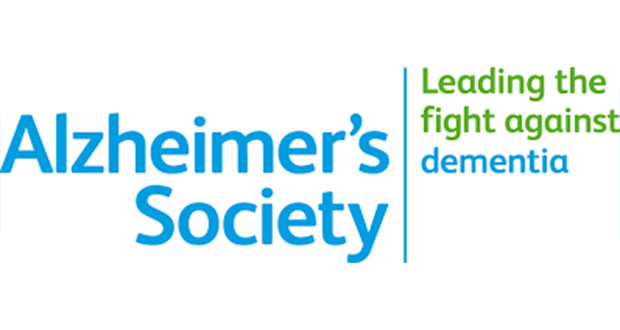People Affected By Dementia Share Actions To Break Down Stigma And Isolation
 People affected by dementia highlighted the small actions that would have a big impact on their lives and enabling them to live the lives they choose, such as continuing to invite people with dementia out and making sure you listen and include them in conversations. People affected by dementia highlighted the small actions that would have a big impact on their lives and enabling them to live the lives they choose, such as continuing to invite people with dementia out and making sure you listen and include them in conversations.
A year on from the largest ever survey of people with dementia ‘Turning up the Volume’, to gather a full picture of living with dementia today, Alzheimer’s Society talked to more than 500 people affected by dementia and those working with them – and it’s clear the same problems persist, as the first ever Dementia Action Week (21-27 May) is underway. Alarmingly, people reported the loss of their friends and social life post diagnosis, facing isolation caused by public stigma and fear and misunderstandings of dementia and how to interact with people living with the condition. Dementia is the biggest health and social challenge we face. With one person diagnosed with dementia every three minutes in the UK, almost everyone knows someone affected but too many people face the condition alone, without adequate support. While much progress has been made to becoming a dementia friendly UK, including 2.4 million Alzheimer’s Society Dementia Friends trained globally and over 350 dementia friendly communities across the UK, people with dementia tell us that more urgently needs to be done. That’s why this Dementia Action Week Alzheimer’s Society, the UK’s leading dementia charity, is calling on everyone across the UK to play their part. Alzheimer’s Society is asking everyone to take these actions this week:
Pamela Roberts, who lives with dementia and features in the Dementia Action Week campaign, says:‘There is a big stigma. I think there’s a fear of how do I talk to that person? But I’m still me, I can still hold a conversation, I can still recognise people and even when I can’t, I still want to be talked to the same.’ Alzheimer’s Society support Shelagh Robinson, also living with dementia, says:‘Understand I’m still the person I always was, but now I have memory and cognitive problems. My diagnosis of dementia doesn’t and shouldn’t define me. Nor should I be ashamed of what is beyond my control. I am still me. Realise I have value, skills, knowledge and experience.’ Pamela and Shelagh’s comments echo the findings of a separate new survey of over 2,300 UK adults which highlights the stigma and misunderstandings around the condition that contribute towards the isolation so many people affected by dementia feel:
The social isolation people with dementia feel is echoed in the public’s worries. Over half (57%) say dementia is their greatest concern for old age and 55% felt their life would be over if diagnosed, over two-fifths (42%) worry that people would treat them like a child and over a quarter (26%) of people polled saying they would be concerned their friends wouldn’t want to see them anymore if they were diagnosed, with 24% had the same concerns about family members. This is no doubt partly because over two-thirds (67%) are concerned about being a burden to others if diagnosed, mirroring the concerns of people with dementia with Turning up the Volume report revealing 48% were worried themselves about becoming a burden. However, despite the public’s fears about dementia and lack of understanding, the UK public would seem to support the campaign, with 84% of people polled expressing that everyone should be aware of dementia and the small ways they can support people, 84% saying they could easily be more patient to help a person with dementia and nearly four-fifths (79%) saying it would be easy for them to invite a person with dementia out. There’s also strong support for community change, with 86% saying that activities should be made accessible for people with dementia, 79% saying that all transport should be made more accessible, over three-quarters (76%) agreeing that shop staff should be trained to help support customers with dementia. The new 2017 Dementia Statements set out the rights of people with dementia to be treated the same as others, including ‘the right to be accepted and included in our communities and not live in isolation or loneliness’. They are behind the renaming of Dementia Awareness Week to Dementia Action Week this year in recognition that it is action that is urgently needed to help people with dementia and their carers feel included and not abandoned in their community. From continuing to invite people with dementia out, to making sure you listen and include them in conversations, people affected by dementia have told us what will make the biggest difference – and Alzheimer’s Society is asking everyone to take these actions this week. Commenting on the findings, Jeremy Hughes, Chief Executive of Alzheimer’s Society, said:‘A year from the launch of the new Dementia Statements, setting out the rights for people with dementia to live the lives they want and be included in society, it is saddening to see that there is still so much fear and stigma surrounding dementia. There is no denying that living with dementia is enormously challenging and so it is vital that we all unite to tackle the biggest health and social care issue of our day. ‘We have already taken great strides forwards to improve the experiences of people with dementia across the UK. Over 2.4million people have already become Dementia Friends and there are already over 350 communities working to become dementia friendly but collectively we need to do more. It doesn’t have to be complicated, committing to simple actions like being more patient or including a person with dementia in the conversation will all help to do this. ‘We are urging everyone to get involved this Dementia Action Week and pledge their support by visiting alzheimers.org.uk/DAW.” ‘I know first-hand just how difficult a dementia diagnosis can be not only for the person affected but everyone close to them. When Barbara and I decided to share the news of her diagnosis, we were both overwhelmed not only by the outpouring of support but also by the number of people who seem to be in very similar situations themselves. For me personally, being able to talk openly about Barbara’s dementia has been invaluable and a huge sense of relief. It is so important that we address the stigma surrounding dementia and all make small changes in our communities to help people like Barbara to continue to go out and live the life that they want. This is why we are supporting Alzheimer’s Society’s Dementia Action Week and hope of lots of people across the country also get involved.’
Rise “Sicker Patients” Increase Pressure on NHS
The number of patients admitted urgently to hospital has increased by almost half over the past decade, up 42% – that’s an average of 3.2% per annum. This exceeds growth in total number of people attending A&E departments, which is up by only 13% – just over 1% per annum. Instead, patients arriving at A&E are sicker than ever before, and more likely to need admission. Emergency admissions have grown particularly quickly for patients with multiple health conditions, as well as for older patients aged 85 or over, up by 58.9%. The financial implications for the NHS in England are vast, the cost of emergency admissions in 2016-17 was £17 billion, up £5.5 billion in ten years. The UK has the third lowest number of hospital beds in the European Union (2.6 per 1,000 population in 2015), and the second highest rate of bed occupancy. By the end of 2017, the percentage of acute hospital beds in use at one time in England was 90.7%, well over the 85% benchmark recommended by the Royal Colleges of Emergency Medicine and Surgery. While the number of emergency admissions has increased by 3.2% each year on average over the last decade, the number of beds dedicated to these patients has grown only by 0.3% per year. Hospitals are treating patients more quickly, with overnight stays for those with five or more conditions lasting 10.8 nights in 2015-16 compared with 15.8 days a decade previously. The number of these patients admitted to hospital for less than 24 hours has grown by 373% over the same period. Higher numbers of emergency patients with more complicated needs and who stay longer in hospital once admitted are challenging to manage. With so little spare capacity available, hospitals are increasingly being forced to cancel or postpone planned treatment. Recent figures published by NHS England show more patients are waiting longer to begin planned treatment. In March 2018, for the first time in almost a decade, nearly half a million people had been waiting longer than 18 weeks for planned care. Dr Jennifer Dixon, Chief Executive of the Health Foundation said: ‘Hospital staff have been saying for some time that they are admitting higher numbers of much sicker patients and these new findings show they are right. Staff have worked incredibly hard under pressure to provide emergency treatment for rising numbers of older patients with multiple conditions. ‘One third of patients admitted to hospital as an emergency today will have three or four conditions such as heart disease, diabetes and high blood pressure and present to A&E with an acute episode such as a stroke. These patients require urgent and intensive treatment, often across different specialities and this is putting huge strain on hospitals’ capacity to deliver planned care. ‘Some of the increase is because the NHS is able to keep older and sicker patients alive for longer who then return to hospital. However, it could also suggest that health and care support in the community is not as good as it could be. ‘The Prime Minister recently announced both a ten-year funding settlement for the NHS and a green paper on the future of social care, which is in urgent need of revival. Longer-term investment in both the NHS and social care system is critical to meet the needs of a growing and more frail ageing population.’ The report also looks at opportunities to reduce emergency admissions, key findings include: 1. Around 26.5% of all unplanned A&E attendances in England (5.77 million per year) were preceded by the patient being unable to obtain a general practice appointment that was convenient to them, though comparatively few of these A&E attendances will have resulted in an admission. 2. 3. Approximately 14% of all emergency admissions are for ‘ambulatory sensitive’ conditions – conditions where timely and effective ambulatory care would have reduced the risk of admission. These conditions include asthma for which care delivered in GP practices or care homes can prevent deterioration, as well as conditions that are preventable by vaccination such as influenza and pneumonia. 4. 5. If older patients saw their most frequently seen GP two more times out of every 10 consultations, this would be associated with a 6% decrease in admissions for ambulatory care sensitive conditions. 6. 7. Although there is potential to reduce admissions by making improvements elsewhere in the health care system, there are few well-evidenced examples of interventions that led to sustained reductions. With the numbers of patients needing emergency treatment rising along with costs, it is more important than ever to understand why comparatively few initiatives have succeeded and what changes are needed to ensure that future interventions are effective. |






